Introduction
In 2025, careers in data are more exciting and vital than ever before. Organizations across industries are competing to harness data for smarter decisions, stronger customer relationships, and faster innovation. That means opportunities for data professionals have exploded—ranging from entry-level analysts to senior architects and AI specialists.
So, who are these professionals? They include analysts who crunch numbers, engineers who build data pipelines, scientists who experiment with AI, and strategists who map long-term data initiatives. Each role offers different challenges, rewards, and growth paths.
This guide takes you through 20 types of data professionals, combining role descriptions, required skills, real-world examples, and future trends. Whether you’re a student, job switcher, or experienced professional, you’ll gain clarity on which career path could be your best fit.
Industry Landscape & Demand
Data careers are in high demand worldwide. According to the World Economic Forum’s 2025 Jobs Report, data-related roles remain in the top 10 fastest-growing careers. Glassdoor reports average salaries of ₹12–18 LPA for Data Scientists in India and around $125,000 in the US, with Data Engineers often earning slightly higher.
Industries fueling this growth include:
- Finance – for fraud detection and algorithmic trading. Example: Paytm using AI for real-time fraud alerts.
- Healthcare – predictive analytics for patient care, as seen at Apollo Hospitals in India.
- Marketing – personalization engines like Netflix’s recommendation system.
- AI/Tech – companies like Google and Infosys hiring Data Ethicists and MLOps Engineers to ensure responsible AI.
Automation is shifting responsibilities but not replacing humans. Tools like ChatGPT, Zoho Analytics, and BigQuery are enabling professionals to do more, faster—opening space for hybrid roles like Data Translators and Citizen Data Scientists.
Core Data Roles
These foundational roles are present in almost every modern data team.
3.1 Data Analyst
What they do: Turn raw data into actionable insights. Skills: SQL, Excel, Power BI, Zoho Analytics. Example: A Data Analyst at Flipkart might track daily sales trends during a festival sale to optimize pricing. Salary: ₹6–12 LPA (India), $70k–$90k (US).
3.2 Data Scientist
What they do: Build predictive models using machine learning. Skills: Python, R, TensorFlow, statistics. Example: A Data Scientist at Swiggy fine-tunes models to predict peak delivery times. Salary: ₹12–18 LPA (India), $120k–$150k (US).
3.3 Data Engineer
What they do: Design and maintain ETL pipelines. Skills: Python, Spark, AWS, GCP. Example: A Data Engineer at Amazon ensures Prime Day sales data flows seamlessly into dashboards. Salary: ₹15–20 LPA (India), $130k+ (US).
3.4 Data Architect
What they do: Design enterprise-wide data frameworks. Skills: SQL, NoSQL, data modeling. Example: At Infosys, Data Architects set up secure multi-cloud data ecosystems for clients. Salary: ₹20+ LPA (India), $140k+ (US).
3.5 Business Intelligence (BI) Analyst
What they do: Create dashboards and visualize KPIs. Skills: Tableau, Power BI, Zoho Analytics. Example: A BI Analyst at a bank builds real-time dashboards for loan approvals. Salary: ₹8–14 LPA (India), $80k–$100k (US).
3.6 Data Strategist
What they do: Align data initiatives with business goals. Skills: Roadmapping, ROI analysis, leadership. Example: At a startup, they prioritize which datasets to monetize first. Salary: ₹18–25 LPA (India), $130k+ (US).
3.7 Statistician
What they do: Design experiments and validate results. Skills: Probability, regression, SAS, R. Example: A Statistician in pharma ensures new drug trials meet scientific rigor. Salary: ₹10–15 LPA (India), $90k–$110k (US).
3.8 Machine Learning Engineer
What they do: Deploy ML models into production. Skills: Python, Docker, Kubernetes, MLOps. Example: At Netflix, ML Engineers deploy recommendation models at scale. Salary: ₹15–22 LPA (India), $130k–$160k (US).
Specialized & Emerging Roles
New opportunities are emerging as AI and data ethics reshape industries.
4.1 Data Translator
Bridge between business and tech teams. Example: At Tata Consultancy Services, Data Translators help executives understand AI reports.
4.2 Data Ethicist
Ensure responsible data use. Example: Google employs ethicists to address bias in AI models.
4.3 Citizen Data Scientist
Non-technical staff using low-code tools. Example: A marketing manager using Zoho Analytics to analyze campaign ROI.
4.4 AI Data Scientist
Specialized in deep learning and NLP. Example: OpenAI researchers fine-tuning GPT models for enterprise clients.
4.5 MLOps Engineer
Manage ML model lifecycles. Example: At Infosys, MLOps Engineers track production models for accuracy.
4.6 Data Visualization Specialist
Create compelling charts and dashboards. Example: Building interactive COVID-19 trackers for public dashboards.
4.7 Cloud Data Specialist
Optimize cloud-native systems. Example: AWS-certified specialists at Wipro helping clients migrate data to the cloud.
4.8 Privacy & Compliance Engineer
Focus on GDPR/DPDP compliance. Example: Engineers at Meta ensuring user data policies meet global regulations.
Niche & Sector-Specific Analysts
5.1 Healthcare Data Analyst
Analyze patient outcomes and hospital efficiency. Example: Apollo Hospitals using analytics for treatment success predictions.
5.2 Financial Data Analyst
Model risks, investments, and fraud detection. Example: HDFC Bank using fraud analytics in credit card approvals.
5.3 Marketing Data Analyst
Track digital campaigns and customer behavior. Example: Zomato analyzing campaign ROI during cricket seasons.
5.4 Supply Chain Data Analyst
Optimize logistics and demand forecasting. Example: Reliance Retail managing festive stock through predictive analytics.
Career Development & Skill Building
Building a career in data requires both technical and soft skills. Start with certifications:
- Technical: Google Data Analytics Certificate, Microsoft Azure Data Engineer, AWS Solutions Architect.
- Specialized: Zoho Analytics Expert, Coursera’s Machine Learning Specialization, ISB/IIM Data Science programs.
Soft skills like storytelling, communication, and cross-functional collaboration remain just as important. For example, explaining a model’s outcome to marketing teams requires more than code—it needs clarity and empathy.
Networking matters too. LinkedIn groups, meetups in Bengaluru or Hyderabad, and mentorship platforms like ADaSci can accelerate opportunities.
Building Your Online Presence as a Data Professional
In 2025, standing out isn’t only about technical skills—it’s also about how you present your work online. Many data professionals are discovered through LinkedIn, GitHub, or personal blogs that showcase real projects and clear communication.
To boost visibility:
- Share content using descriptive titles like “Top data careers in India 2025” or “Best MLOps certifications.” These resonate with what people naturally search for.
- Write in a conversational style that works well for FAQs, such as “What does a data scientist do daily?” Recruiters and even AI-powered search engines prefer content that sounds human.
- Keep your online portfolio structured with headings, project summaries, and internal links to different skills or case studies. This makes it easier to navigate—and easier for AI-driven platforms to understand.
- Make your content clear and engaging so it’s ready for platforms like Google Discover or professional AI tools scanning candidate profiles.
By treating your online presence as part of your career toolkit, you ensure your skills reach the right audience at the right time.
8. Conclusion & Next Steps
The universe of data professionals is vast and evolving. From Data Analysts and Engineers to emerging roles like Data Ethicists and MLOps Engineers, there’s a career path for every interest. Salaries are strong, opportunities are global, and the demand shows no sign of slowing.
Your next move? Identify a role that resonates with your strengths, enroll in a certification, and start building a portfolio. To make things easier, we’ve created a free career roadmap PDF—download it and take the first step toward your future as a data professional in 2025.
FAQs on Data Professionals

What are data professionals?
Data professionals are experts who work with data to collect, clean, analyze, interpret, and apply it for decision-making, business growth, and innovation.
Which data professional roles are most in-demand in 2025?
Data Scientists, Data Engineers, Machine Learning Engineers, and Business Intelligence Analysts are among the most in-demand roles in 2025.
What skills do I need to become a data professional?
Core skills include SQL, Python, statistics, data visualization, and cloud platforms. Soft skills like communication and storytelling are equally important.
How much do data professionals earn?
In India, data professionals typically earn between ₹6 LPA to ₹25 LPA depending on the role and experience. In the US, salaries often range from $80,000 to $150,000+.
What is the difference between a Data Analyst and a Data Scientist?
A Data Analyst focuses on descriptive analysis and reporting, while a Data Scientist uses machine learning and statistics to build predictive models.
What are emerging careers for data professionals in 2025?
New roles include Data Ethicists, MLOps Engineers, AI Data Scientists, and Privacy & Compliance Engineers, reflecting the rise of AI and data regulations.
Can non-technical people become data professionals?
Yes. Citizen Data Scientists use low-code or no-code tools like Zoho Analytics or Power BI to analyze data without deep programming knowledge.
Which industries hire the most data professionals?
Finance, healthcare, retail, marketing, and technology are the top industries hiring data professionals in 2025.
How can I start a career as a data professional?
Begin with online certifications (Google Data Analytics, Microsoft Azure, Zoho Analytics), practice projects, internships, and networking on LinkedIn.
Why is personal branding important for data professionals?
Showcasing projects on GitHub, LinkedIn, or a personal blog improves visibility, making it easier for recruiters and AI-powered search engines to discover your work.
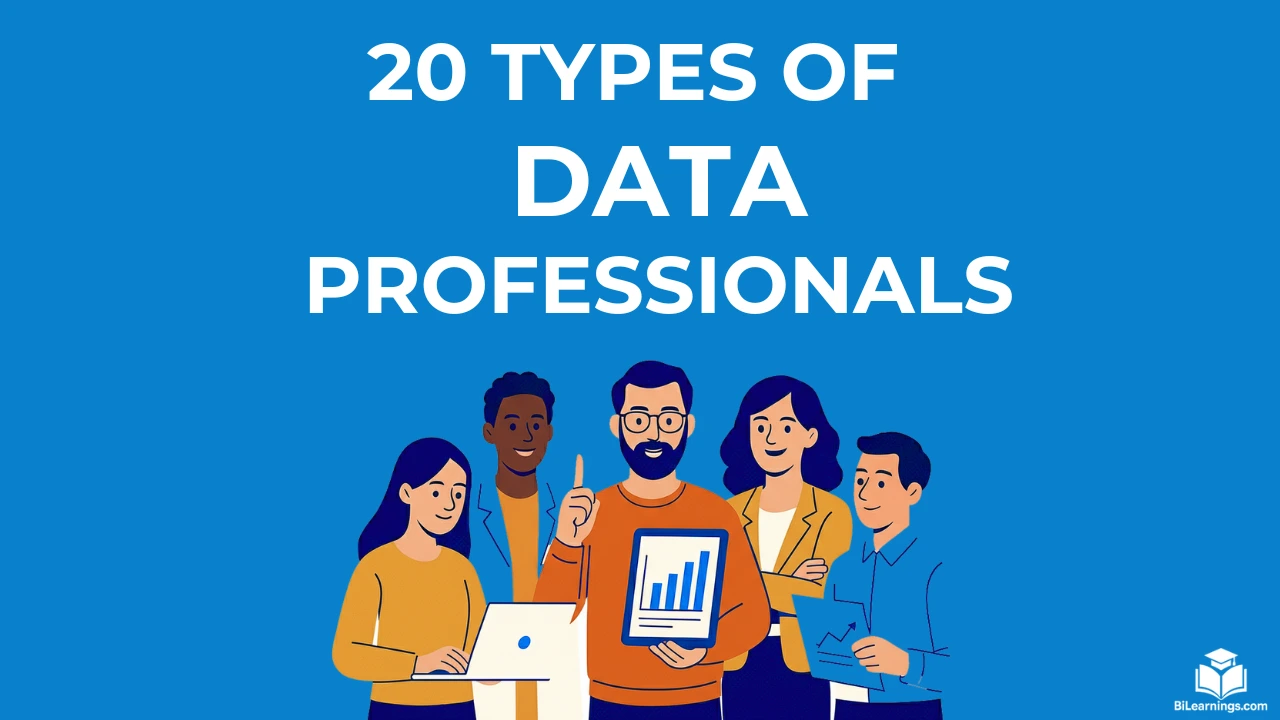





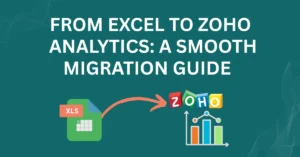
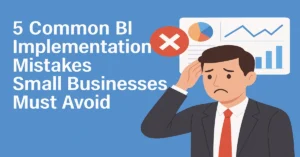
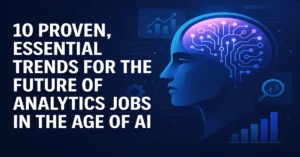

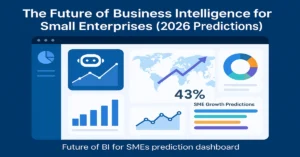
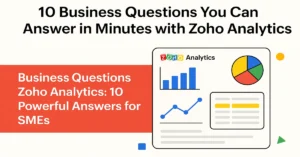
1 thought on “20 Types of Data Professionals: Your Complete Career Guide 2025”
Comments are closed.